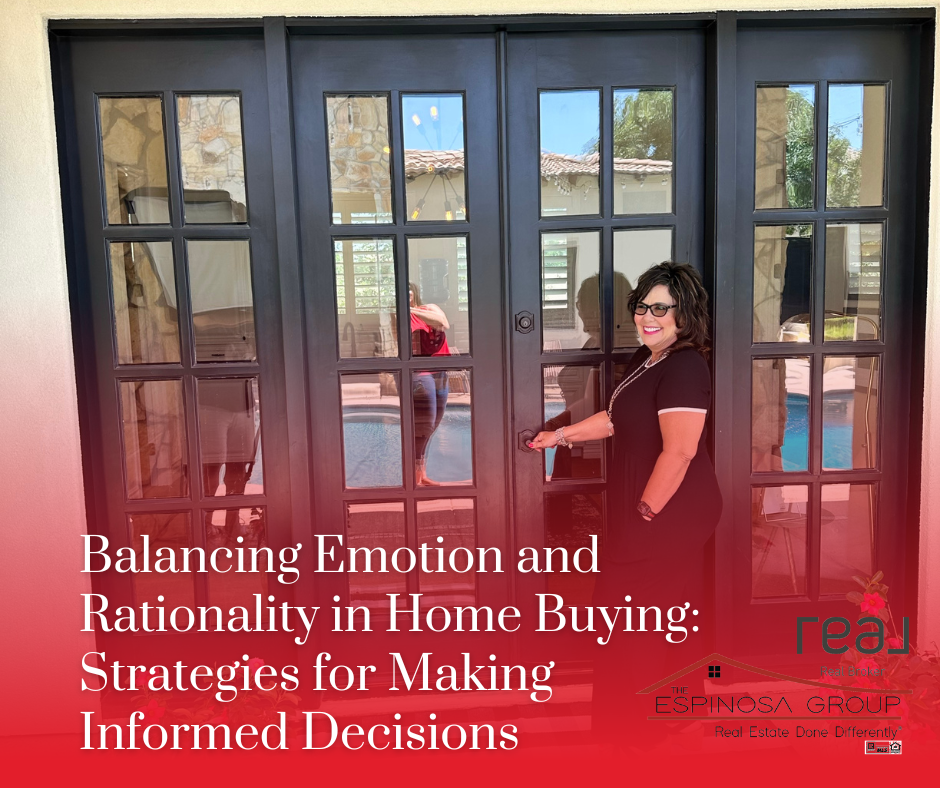Balancing Emotion and Rationality in Home Buying: Strategies for Making Informed Decisions

When buying a home, emotions often play a crucial role in decision-making. Buyers seek more than just a functional space—they want a place where they can envision their future, make memories, and feel a sense of belonging. While these emotional connections can help guide buyers to their ideal homes, they can also cloud judgment and lead to hasty decisions. Therefore, balancing emotional and rational considerations is essential throughout the home-buying process.
The Emotional Aspects of Home Buying
For many, purchasing a home represents a significant life milestone. This journey is filled with excitement, anxiety, hope, and sometimes fear—emotions that impact decisions at every stage. A recent survey revealed that nearly 85% of buyers view their home purchase as an emotional decision, especially true for first-time buyers experiencing this major life event for the first time.
Sellers also bring emotions into the mix. They often reflect on family gatherings, special moments, and personal experiences tied to the property. These sentimental attachments can enhance a home's appeal but might also lead to unrealistic pricing or exaggerated selling points. Both buyers and sellers must navigate this emotionally charged landscape carefully.
Market Update: Navigating a Changing Environment
The real estate market is influenced by current economic conditions, interest rates, and housing inventory. Many areas are seeing tight markets with limited inventory, leading to bidding wars and rising prices. In such competitive environments, emotional decision-making may prompt buyers to act quickly, potentially making offers on properties they haven’t fully assessed.
Market dynamics can amplify fears—such as the fear of losing a property or making a poor investment. In this context, buyers might overlook critical aspects of the home or neighborhood because of a strong emotional reaction. Sellers might be tempted to capitalize on the market’s competitive nature, which could lead to inflated expectations and deter potential buyers.
Strategies for Balanced Decision-Making
Understanding the emotional aspects of home buying is crucial, but applying strategies to maintain logical decision-making is equally important. Here are some techniques to help buyers manage emotions while still honoring their personal desires:
- Set a Realistic Budget:
Before starting the home search, establish a budget that includes not only the list price but also ongoing costs such as property taxes and maintenance. A clear financial plan helps focus on homes within your budget, preventing emotional attachment to properties that are financially impractical.
- Create a Must-Have List:
Develop a checklist of essential features and amenities, such as the number of bedrooms, yard size, and proximity to schools or work. A concrete list helps objectively assess homes based on actual needs rather than emotional impulses.
- Conduct Thorough Research:
Research neighborhoods, schools, and the overall market before making an offer. Visit the area at different times to verify online information. Fact-based decisions help counteract the emotional high from a fleeting attraction to a property.
- Limit House-Hunting Sessions:
Avoid overexposure, which can lead to confusion and impulsive choices. Set a timeline or limit the number of homes viewed in a day to maintain clarity and prevent emotional fatigue.
- Involve a Professional:
A real estate agent can provide valuable market insights and serve as an emotional buffer. Their expertise helps keep you grounded and can identify potential issues or opportunities that emotions might overshadow.
- Visualize the Future:
While it’s natural to imagine your life in a potential new home, balance this with practical considerations. Take time during each visit to envision daily routines and major events in the space to differentiate between romantic ideas and practical realities.
Conclusion: Striking a Harmonious Balance
Emotions are an inherent part of the home-buying process, but by recognizing their impact and employing practical strategies, buyers can make more informed decisions. Emotional connections are vital for finding a home, but blending those feelings with rational evaluation leads to a more satisfying and sustainable investment. Whether you’re buying your dream home or selling to attract potential offers, understanding these emotional dynamics can help you navigate the real estate market effectively and achieve your goals.
Categories
- All Blogs (204)
- Contracts, Negotiations & Process (4)
- Home Buying Process (19)
- Home Buying, Selling, and Investing Tips (57)
- how to buy a house (9)
- How to sell your house (11)
- Importance of a Real Estate Agent (1)
- real estate investment strategies (12)
- Real estate Market in Arizona (6)
- Selling a home (18)
- STAGING DIFFERENTLY (35)
- Staging tips for selling (20)
- THE AGENT (4)
Recent Posts












